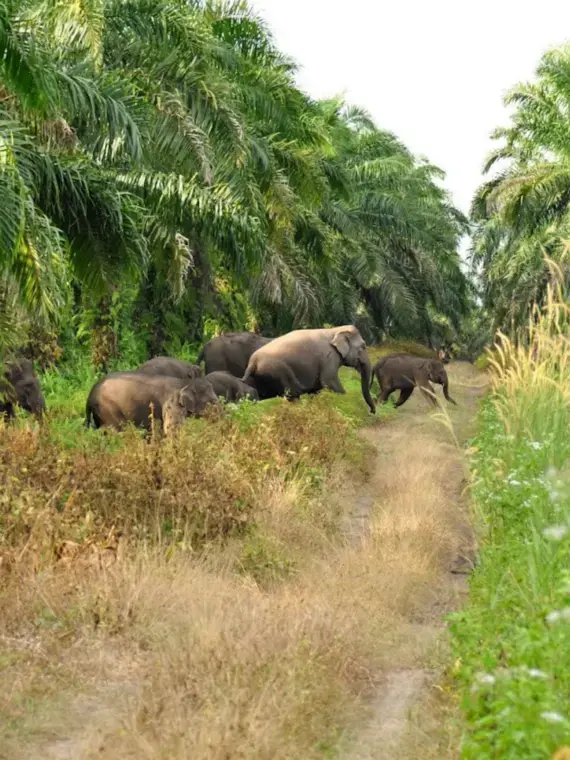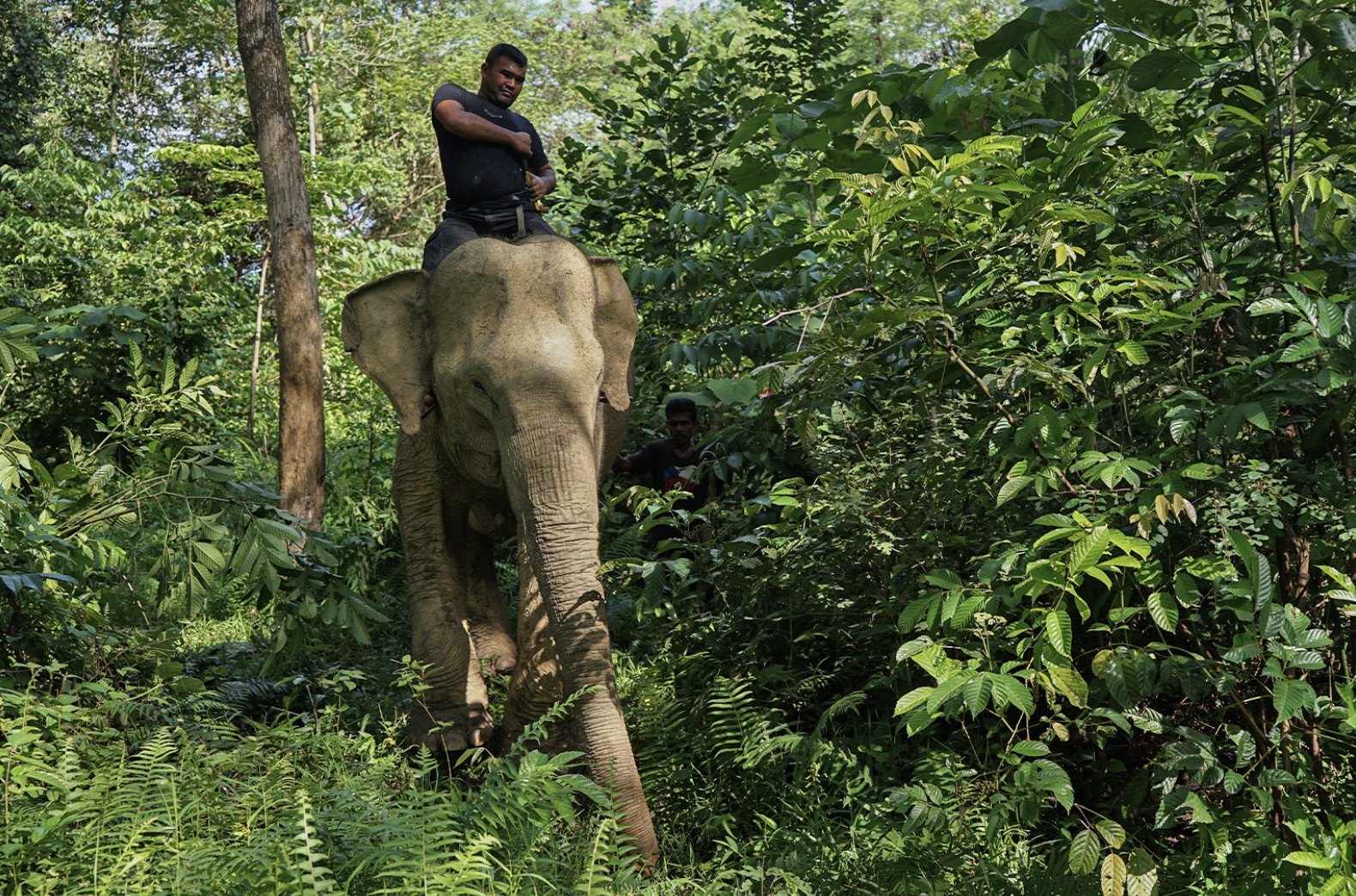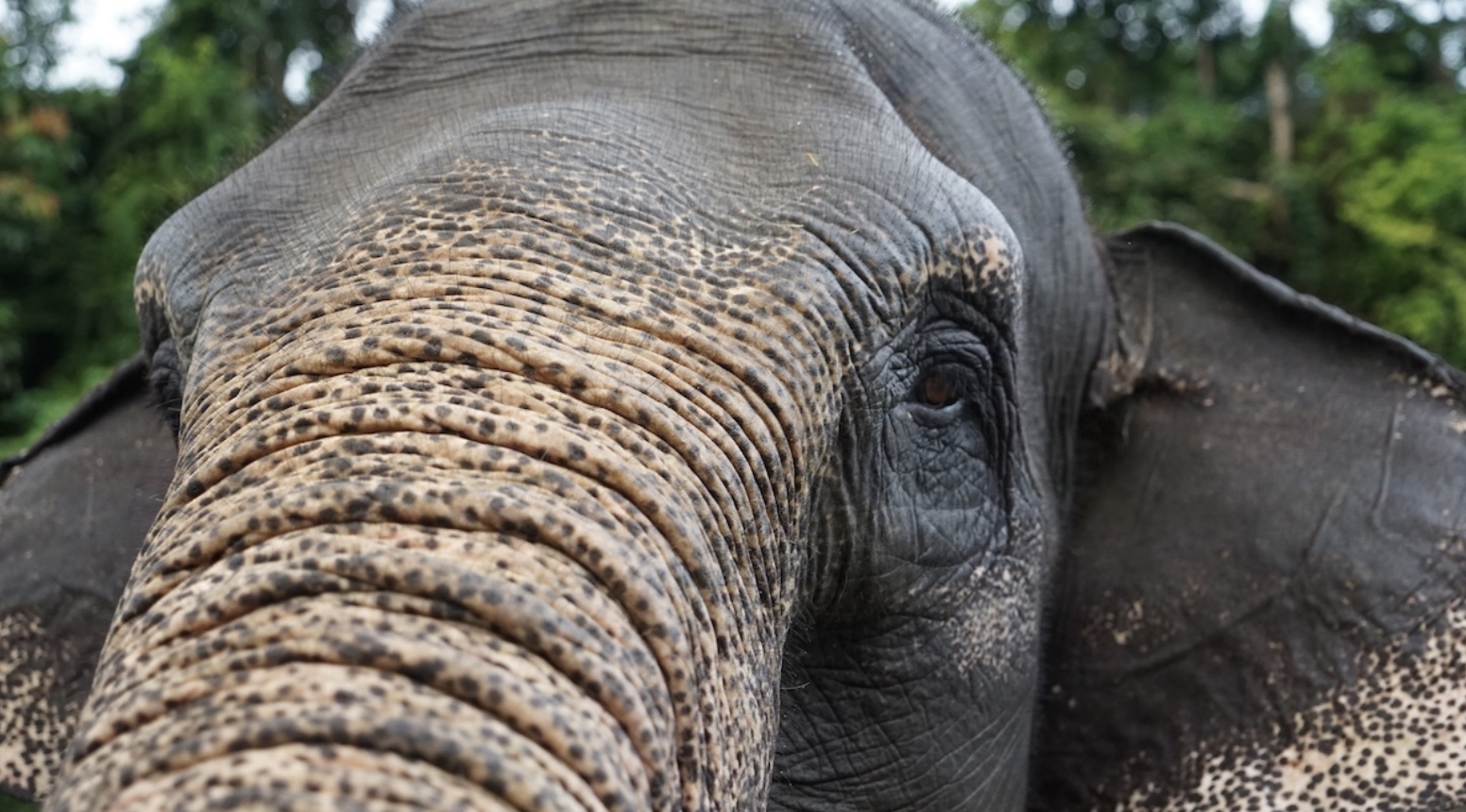Poisoned. Hunted. Snared.
Much is known about the tragic fate of the Sumatran elephant, one of the critically endangered megafaunas in Sumatra. In the past two years, around 44 elephant deaths were reported across the island due to conflicts with industrial and smallholder plantations. But how imperiled is the species?
The answer is obscure. NGO workers have found that there has been a 50% decrease in the elephant population on the island, but the finding has not yet been approved by the Ministry of Forestry and Environmental Affairs (KLHK). Government suppression of conservation science is suspected to be the reason. In 2020, the government approved a document on Sumatran Elephant Urgent Action Plan (Rencana Tindakan Mendesak), but the document was revoked in 2021, partly because "it mentioned [a] counterproductive statement against the government."
Dyna Rochmyaningsih and Fieni Aprilia will travel to Aceh, home to more than a half of the Sumatran elephant population, to check the situation on the ground. They will look into the survey methods behind the data collected by NGO workers and explore the relevance of these surveys for the Sumatran elephant's conservation efforts.
Another question pursued by the team is to investigate how elephant cognition helps the species adapt to the changing environment. Scientists say elephants are among the smartest animals on Earth. Are switching foraging time, shrinking the clan size, and keeping close social bonds helping the elephants to survive in their shrinking and fragmented habitat? The team will follow elephant conservationists and villagers who live around the border of the Leuser ecosystem to find the answers.









